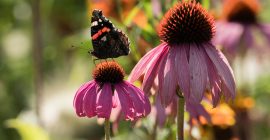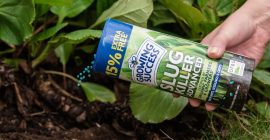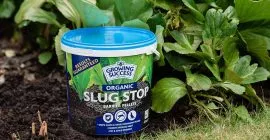Whatever you grow in your garden, you’re sure to have come across aphids.
They’re a group of prolific pests that are commonly described as greenfly and blackfly, although there are also a variety of other pests in this group including the woolly aphid, root aphids and the cabbage aphid.
Aphids are almost always active except in an overwintering egg stage. However, if it’s a mild winter, adult aphids can carry on living and feeding. In optimum conditions, the adult female can actually give birth to live young, missing out the egg stage, thus increasing the population very rapidly. It’s the aphid’s ability to breed and multiply so quickly that makes them such a persistent problem for gardeners.
Symptoms
Aphids cause a range of problems in the garden. Their main form of attach is to suck the sap from fresh young shoots.
Look out for layers of green bugs covered new buds, leaves of roses and just about anything else sprouting in the spring. Plants affected will have stunted growth and will be weaker. Heavily infested plants will die.
Also look out for sooty moulds on plants. Aphids secrete a sweet sticky goo, which covers leaf surfaces and sooty moulds grow on this, causing unsightly blackened leaves. This can block the amount of light reaching the plant, preventing photosynthesis from occurring.
Aphids also spread diseases from plant to plant (like mosquitoes carrying malaria), which can be a real problem for crops such as tomatoes, potatoes, cucumbers, peas, marrows, squashes and many more.
Prevention
There are a few things you can do to make your garden plants less susceptible to aphid attack:
- Choose the correct compost for your plants to ensure they grow strongly
- Make your garden wildlife friendly to encourage a range of birds and insects such as lacewings, ladybirds, hoverflies, earwigs which feed on aphids. Try growing angelica, dill, fennel, daisies, aster and sunflowers, which these insects love.
- Check susceptible plants regularly and squash any aphids you see. Pick off heavily infested shots and leaves and destroy.
- Where there is a heavy infestation on a plant, use a strong jet of water from a hose to dislodge the aphids. This is best done early in the day to allow the plant to dry rapidly and avoid condition which could cause fungal diseases.
Control
Resolva Bug Killer is a unique insecticide which controls both aphids and other sucking and chewing pests. This bug killer can also be used on edible crops in the garden and greenhouse.




